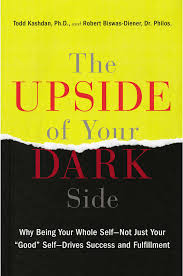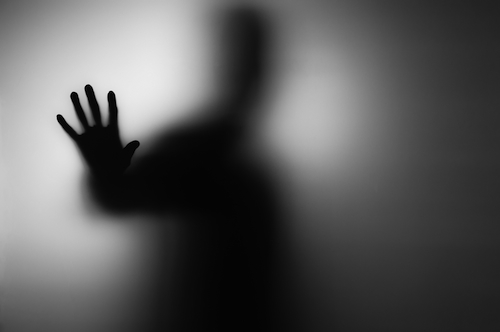 Every moviegoer knows that Darth Vader was seduced by the dark side of the Force. Tapping its volcanic energies of anger, hatred, and fear, he gained awesome powers, but at the cost of his humanity. And then, of course, there’s the story of Faust, who sold his immortal soul to the Devil so he could gain the world.
Every moviegoer knows that Darth Vader was seduced by the dark side of the Force. Tapping its volcanic energies of anger, hatred, and fear, he gained awesome powers, but at the cost of his humanity. And then, of course, there’s the story of Faust, who sold his immortal soul to the Devil so he could gain the world.
Beware of devils and their bargains, the moral goes. They cost more than you can ever pay.
Todd Kashdan and Robert Biswas-Diener are hardly demonic, but in The Upside of Your Dark Side: Why Being Your Whole Self—Not Just Your “Good” Self—Drives Success and Fulfillment, their new book from Hudson Street Press, they put forward a similar proposition: acknowledge your negative emotions and impulses and use them judiciously and you will not just be better off for it—you will be a better person. Only, as they tell it, there isn’t a catch.
 Noted researchers in the field of positive psychology, the scientific study of optimal frames of mind and human thriving, Kashdan and Biswas-Diener were put off by what they call the “smiling fascism” of its “gung-ho happiology.” Yes, happiness is associated with a host of good things—a stronger immune system, a higher income, better sex, and even more altruism. But happiness is not everything, and pursued to the exclusion of the rest of the spectrum of emotions, happiness can even be a bad thing. Sometimes sadness is more situationally appropriate; too much ebullience can dull your critical edge. Anxiety can be a goad to creativity; guilty feelings can impel you to change your behavior for the better.
Noted researchers in the field of positive psychology, the scientific study of optimal frames of mind and human thriving, Kashdan and Biswas-Diener were put off by what they call the “smiling fascism” of its “gung-ho happiology.” Yes, happiness is associated with a host of good things—a stronger immune system, a higher income, better sex, and even more altruism. But happiness is not everything, and pursued to the exclusion of the rest of the spectrum of emotions, happiness can even be a bad thing. Sometimes sadness is more situationally appropriate; too much ebullience can dull your critical edge. Anxiety can be a goad to creativity; guilty feelings can impel you to change your behavior for the better.
Shiny happy people aren’t nearly as resilient as people who know how to temper their expectations with a salutary dose of pessimism.
The same goes for humility and selflessness. A little psychopathology, they say, can be a good thing. Not the monstrousness of Hannibal Lecter, of course, but the grandiose self-assuredness of Steve Jobs and Henry Ford allowed them to accomplish incredible things. None of us are entirely free from narcissism—and that’s not a bad thing.
Trying too hard to be happy and positive doesn’t just make us less effective as parents, bosses, romantic partners, and friends; it makes us less happy. Shiny happy people aren’t nearly as resilient as people who know how to temper their expectations with a salutary dose of pessimism.
By not only accepting but also actually embracing the less comfortable aspects of your being, if only for brief periods, you maximize your chances for true success and becoming whole.
Reading The Upside of Your Dark Side put me in mind of a line from a Carl Sandberg poem:
Yes, be happy, it’s a good nice
way to be.
But not happy-happy, kid, don’t
be too doubled-up doggone happy.
Better by far to be authentic; better by far to be whole.
Click here to see Rose’s tips for healthy and happy relationships




1 Comment
Anthony Metivier
Great post.
Not sure happy people are any more or less fragile or resilient than realists or pessimists.
I think the key word in the post is “trying.” Not to get all Yoda on anyone, but the key to “awareness” is just that logic of “do or do not, there is no try.”
Why?
Because so many people suffer from Slave’s Luck. This is the phenomenon of getting a job you studied so hard for only to find out you hate it. But then you’re trapped, causing you to fantasize endlessly about the past, the future, alternate forms of the present.
Thus, for the definition of happiness, we might look back to ancient Greek. From Wikipedia:
Eudaimonia (Greek: εὐδαιμονία [eu̯dai̯monía]), sometimes anglicized as eudaemonia or eudemonia /juːdɨˈmoʊniə/, is a Greek word commonly translated as happiness or welfare; however, “human flourishing” has been proposed as a more accurate translation.